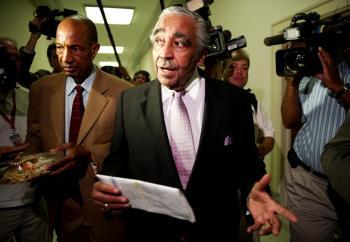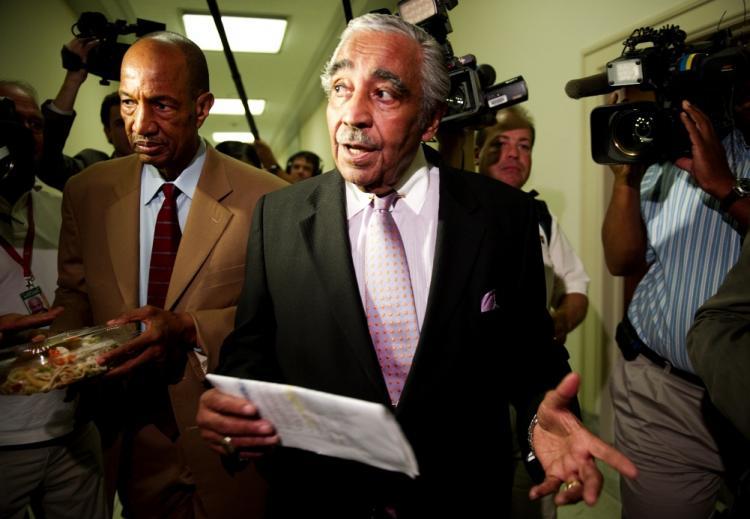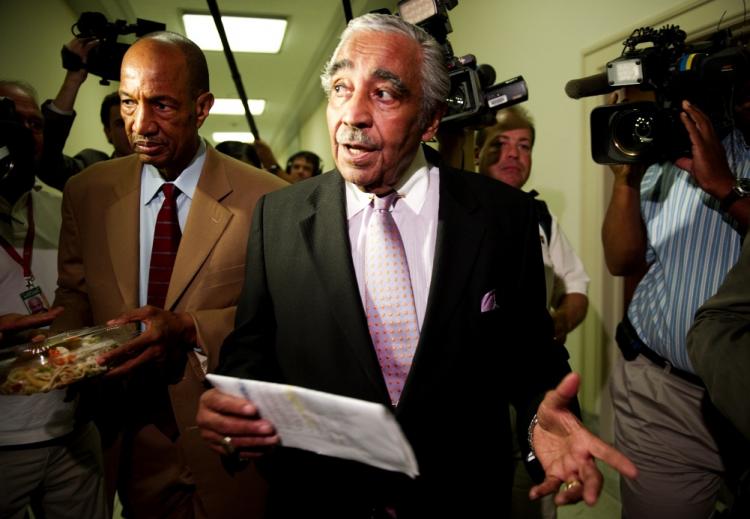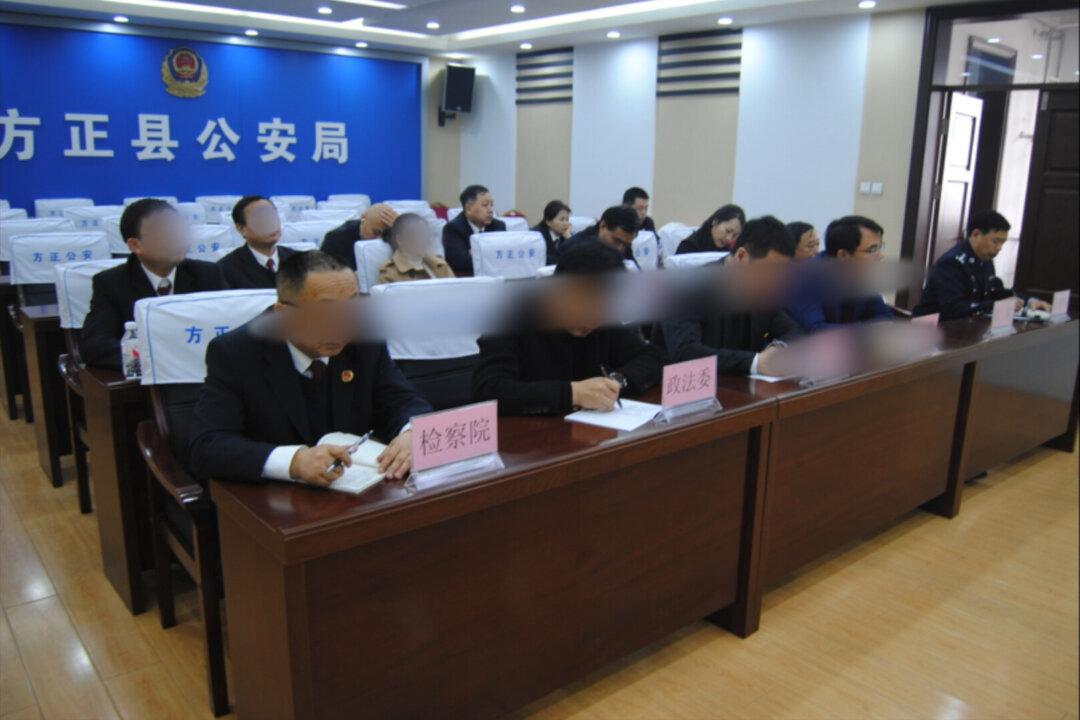NEW YORK—With the midterm elections just three months away, the House of Representatives ethics subcommittee formally charged Harlem Democrat Charles Rangel with 13 counts of violating ethics rules on Thursday.
The congressman, who was attacked by the Chinese during the Korean War, clearly sounded pessimistic about his future on Thursday, comparing the day to his years in the war. “Sixty years ago, I survived a Chinese attack in North Korea, and as a result, I wrote a book that having survived that, that I haven’t had a bad day since,” he said. “Today I have to reassess that.”
Rangel, having served in the House for 40 years, is running for re-election in November, though he could be heading for trial starting in September.
He faces charges that include not disclosing income on $600,000 worth of income and using rent-stabilized apartments meant for people of low income.
During his investigation, the 20-term congressman had the opportunity to negotiate a settlement, which was echoed by various media outlets.
However, as Rep. Michael McCaul (R-Texas) stated “we are now in the trial phase” and no deals will be handed out to Rep. Rangel.
With Rangel’s hearing, “the very credibility of the House of Representatives [is] itself before the American people,” said McCaul, who is the ranking Republican on the ethics panel. He added that in a recent poll only 11 percent of Americans approve of the job the House is doing.
The head of the ethics subcommittee Rep. Gene Green (D-Texas) said that Rangel’s stature and tenure in the House makes it especially hard to investigate him.
“One of the most difficult tasks assigned to a member of Congress is to sit in judgment of a colleague,” Green said. “The task is even more difficult when the subject of the judgment has befriended and mentored so many new members of Congress.”
Rangel, who was not at the hearing, released a 32-page-long statement on Thursday defending himself.
“The undisputed evidence in the record ... is that Congressman Rangel did not dispense any political favors, that he did not intentionally violate any law, rule or regulation, and that he did not misuse his public office for private gain,” reads the document.
The congressman, who was attacked by the Chinese during the Korean War, clearly sounded pessimistic about his future on Thursday, comparing the day to his years in the war. “Sixty years ago, I survived a Chinese attack in North Korea, and as a result, I wrote a book that having survived that, that I haven’t had a bad day since,” he said. “Today I have to reassess that.”
Rangel, having served in the House for 40 years, is running for re-election in November, though he could be heading for trial starting in September.
He faces charges that include not disclosing income on $600,000 worth of income and using rent-stabilized apartments meant for people of low income.
During his investigation, the 20-term congressman had the opportunity to negotiate a settlement, which was echoed by various media outlets.
However, as Rep. Michael McCaul (R-Texas) stated “we are now in the trial phase” and no deals will be handed out to Rep. Rangel.
With Rangel’s hearing, “the very credibility of the House of Representatives [is] itself before the American people,” said McCaul, who is the ranking Republican on the ethics panel. He added that in a recent poll only 11 percent of Americans approve of the job the House is doing.
The head of the ethics subcommittee Rep. Gene Green (D-Texas) said that Rangel’s stature and tenure in the House makes it especially hard to investigate him.
“One of the most difficult tasks assigned to a member of Congress is to sit in judgment of a colleague,” Green said. “The task is even more difficult when the subject of the judgment has befriended and mentored so many new members of Congress.”
Rangel, who was not at the hearing, released a 32-page-long statement on Thursday defending himself.
“The undisputed evidence in the record ... is that Congressman Rangel did not dispense any political favors, that he did not intentionally violate any law, rule or regulation, and that he did not misuse his public office for private gain,” reads the document.







